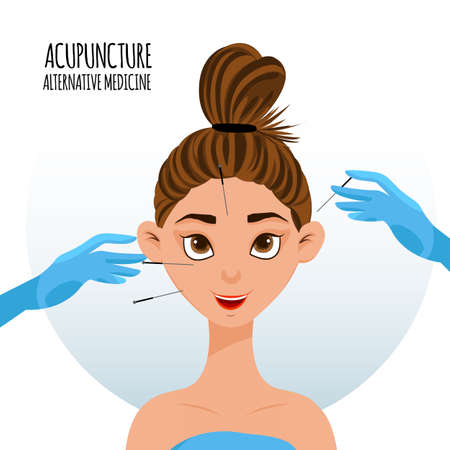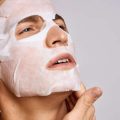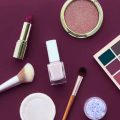1. Understanding Facial Massage
Facial massage is a gentle, hands-on technique that involves using the fingers, tools, or devices to stimulate the skin and muscles of the face. It’s not just about relaxation—this practice has deep roots in history and has transformed into a popular anti-aging method in today’s skincare routines across the U.S.
Origins of Facial Massage
The concept of facial massage dates back thousands of years. Ancient cultures like China, Egypt, and India used various forms of facial stimulation to promote beauty, health, and inner balance. Techniques such as Gua Sha from Traditional Chinese Medicine or Ayurvedic face massages were designed to enhance circulation and encourage the body’s natural healing processes.
Traditional Facial Massage Practices by Region
| Region | Technique | Main Benefits |
|---|---|---|
| China | Gua Sha | Improves circulation, reduces puffiness |
| India | Ayurvedic massage | Balances energy, promotes glow |
| Egypt | Aromatic oils & kneading techniques | Smoothes skin, enhances radiance |
The Evolution into Modern Skincare
Today, facial massage has become an essential part of both professional spa treatments and at-home skincare routines in the United States. With the rise of self-care culture and clean beauty trends, more people are turning to this natural approach to support anti-aging efforts.
Modern Facial Massage Tools Used in the U.S.
| Tool | Description | Common Use |
|---|---|---|
| Jade Roller | A smooth stone roller used to reduce puffiness and increase blood flow | Mornings for de-puffing; evenings for serum absorption |
| Gua Sha Tool | A flat stone tool used with oil for sculpting and lymphatic drainage | 2–3 times per week for contouring effect |
| Electric Face Massager | A battery-powered device that vibrates or pulses to tone facial muscles | Daily use to firm skin and boost collagen production |
Why It Matters for Anti-Aging
Facial massage isnt just a relaxing experience—it helps increase blood flow, supports lymphatic drainage, reduces muscle tension, and improves product absorption. All these benefits contribute to healthier-looking skin over time, making it a valuable addition to any anti-aging routine.
2. How Facial Massage Supports Anti-Aging
Facial massage isn’t just a relaxing treat—it’s also a powerful tool in your anti-aging skincare routine. When done regularly and correctly, facial massage can help improve the appearance of your skin by boosting circulation, encouraging collagen production, and naturally reducing fine lines and wrinkles.
Boosts Blood Circulation
When you massage your face, you’re stimulating blood flow to the skin’s surface. This increased circulation delivers more oxygen and nutrients to the skin cells, helping them function better and regenerate faster. As a result, your complexion may appear brighter, fresher, and more youthful.
Benefits of Improved Circulation
| Benefit | Description |
|---|---|
| Healthier Skin Tone | Brings a natural glow by delivering oxygen-rich blood to skin tissues. |
| Faster Skin Cell Turnover | Supports new cell growth and removes dull, dead skin cells. |
| Reduced Puffiness | Improves lymphatic drainage which helps reduce swelling and puffiness. |
Stimulates Collagen Production
Collagen is the protein that gives your skin its firmness and elasticity. As we age, collagen production slows down, leading to sagging skin and wrinkles. Regular facial massage can stimulate fibroblast cells—the cells responsible for making collagen—which may help maintain skin firmness over time.
How Massage Helps with Collagen
- Tactile pressure: Gently pressing and kneading the skin signals your body to produce more collagen.
- Increased blood flow: Nourishes fibroblasts so they can work more efficiently.
- Skin elasticity boost: Helps keep skin plump and bouncy.
Smooths Fine Lines and Wrinkles Naturally
The repetitive motion of facial massage helps relax tense facial muscles—especially around areas like the forehead, eyes, and mouth where expression lines tend to form. Over time, this can soften the appearance of fine lines and prevent deeper wrinkles from developing.
Target Areas for Anti-Aging Massage
| Facial Area | Massage Technique | Anti-Aging Benefit |
|---|---|---|
| Forehead | Smooth upward strokes using fingertips or a massage tool. | Reduces frown lines and tension headaches. |
| Under Eyes | Light tapping or sweeping motions with ring fingers. | Diminishes puffiness and crow’s feet. |
| Mouth Area | Circular motions around lips and smile lines. | Smooths laugh lines and improves lip contour definition. |
By incorporating facial massage into your daily or weekly skincare routine, you’re not only giving yourself a moment of self-care but also helping your skin age gracefully without invasive treatments or harsh chemicals.

3. The Science Behind the Practice
Facial massage isnt just a relaxing self-care ritual—it actually has real biological effects that can support anti-aging efforts. Let’s take a closer look at what happens beneath the surface when you treat your skin to regular facial massages.
How Facial Massage Works on a Cellular Level
When you massage your face, youre doing more than stimulating the skin—you’re also encouraging increased blood circulation and oxygen flow to the skin cells. This boost in circulation helps deliver essential nutrients and remove waste products more efficiently, which can contribute to a brighter, healthier complexion.
The Role of Lymphatic Drainage
Lymphatic drainage is one of the key benefits of facial massage. The lymphatic system is responsible for removing toxins and excess fluids from the body. Gentle massage techniques help stimulate lymph flow, reducing puffiness and promoting clearer skin. Over time, this detoxifying effect can give the face a more sculpted and youthful appearance.
Benefits of Lymphatic Drainage in Facial Massage
| Benefit | Description |
|---|---|
| Reduces Puffiness | Helps drain excess fluid from tissues around the eyes and cheeks |
| Improves Skin Tone | Enhances blood and lymph circulation for a more even complexion |
| Boosts Detoxification | Aids in removing toxins that may contribute to dull or irritated skin |
Improving Skin Elasticity Through Massage
As we age, our skin loses collagen and elastin—proteins that keep it firm and bouncy. Facial massage stimulates fibroblasts, the cells that produce these proteins. Regular stimulation can help slow down the breakdown of collagen and encourage new growth, leading to improved elasticity over time.
What Experts Say
According to dermatologists and estheticians, facial massage can be an effective complementary approach to skincare routines focused on anti-aging. While it’s not a replacement for treatments like retinoids or sunscreen, it enhances their effects by improving how products absorb into the skin and supporting overall skin health from within.
Quick Tip:
For best results, use upward strokes with light pressure, ideally with a hydrating serum or facial oil to reduce friction.
4. Incorporating Facial Massage Into Your Routine
Adding facial massage to your daily skincare routine is easier than you might think—and it doesn’t have to be time-consuming or expensive. With just a few minutes each day, you can boost circulation, promote lymphatic drainage, and support your skin’s natural glow and firmness. Whether youre using tools like jade rollers and gua sha stones or simply your hands, here are some simple ways to get started.
Easy Ways to Add Facial Massage to Your Day
Facial massage can be done during your regular skincare steps, like when applying moisturizer or serum. Here are some quick tips:
| Step | What to Do | Tools (Optional) |
|---|---|---|
| Cleansing | Use circular motions with your fingertips while cleansing to gently stimulate the skin. | Your hands |
| Serum Application | Apply serum and use upward strokes on the cheeks and forehead to lift and firm. | Your hands or jade roller |
| Lymphatic Drainage | Sweep outward from the center of the face toward the ears and down the neck to help with fluid movement. | Gua sha tool |
| Tension Relief | Melt away stress by pressing gently into areas like the temples, jawline, and brow bone. | Your fingers or gua sha tool |
The Best Times for Facial Massage
- Morning: Helps reduce puffiness and wake up tired-looking skin.
- Evening: A relaxing way to wind down while boosting product absorption.
A Few Minutes Go a Long Way
You don’t need a full spa session every day—just 3 to 5 minutes of facial massage can make a noticeable difference over time. Consistency is key, so find what works best for your schedule and stick with it. Whether it’s a morning pick-me-up or part of your nighttime wind-down, facial massage is an easy self-care step that supports healthy, youthful-looking skin.
5. What to Expect and What to Avoid
Facial massage can be a great addition to your anti-aging routine, but knowing what to expect—and what to avoid—can make all the difference. While it offers real benefits like boosting circulation and promoting lymphatic drainage, its not a miracle cure. Here’s a breakdown of realistic outcomes, possible risks, and common mistakes people make when starting out.
What You Can Realistically Expect
Facial massage helps stimulate blood flow and relax facial muscles. Over time, this can lead to:
- A more radiant complexion
- Temporary reduction in puffiness
- Slightly firmer skin with consistent use
- Better absorption of skincare products
However, don’t expect overnight results or dramatic wrinkle removal. Facial massage works best as part of a long-term skincare routine.
Potential Risks and Precautions
Like any skincare method, facial massage isn’t for everyone. It’s important to understand how your skin type and concerns play into it.
| Skin Type/Concern | Precautions |
|---|---|
| Sensitive Skin | Use light pressure; avoid essential oils that may cause irritation. |
| Acne-Prone Skin | Avoid massaging over active breakouts; can spread bacteria or worsen inflammation. |
| Mature Skin | Gentle upward strokes help support elasticity; pair with hydrating serums. |
| Rosacea | Skip facial massage unless approved by a dermatologist; it may trigger flare-ups. |
Common Mistakes to Avoid
- Using too much pressure: Facial skin is delicate—gentle movements are more effective than forceful ones.
- Massaging dirty skin: Always cleanse your face before starting to avoid pushing dirt and oil deeper into pores.
- Skipping lubrication: Use an oil or serum to prevent tugging on the skin, which can lead to irritation or fine lines.
- Doing it inconsistently: Like exercise, consistency is key for visible results over time.
Pro Tip:
If youre new to facial massage, start slow—just 5 minutes a day—and pay attention to how your skin reacts. Adjust techniques and frequency based on what feels right for you.
6. Expert Tips for Maximizing Results
Facial massage can be a powerful tool in your anti-aging skincare routine—if done correctly. To help you get the most out of your efforts, weve gathered dermatologist-approved advice, as well as practical dos and don’ts to guide your technique and timing. Whether you’re new to facial massage or looking to level up your current practice, these expert tips will keep your skin glowing and youthful.
💡 Do’s: What You Should Be Doing
The right techniques and habits can make all the difference. Here are some facial massage best practices recommended by skin experts:
| Do | Why It Matters |
|---|---|
| Use clean hands and tools | Prevents bacteria from causing breakouts or irritation |
| Apply a facial oil or serum before massaging | Reduces friction and helps ingredients absorb better |
| Use upward and outward motions | Helps lift the skin and avoid sagging over time |
| Be consistent (2–3 times per week) | Regular massages support long-term anti-aging benefits |
| Focus on areas prone to aging (forehead, eyes, jawline) | Targets fine lines and boosts circulation where it’s needed most |
🚫 Don’ts: Common Mistakes to Avoid
Even with the best intentions, certain habits can work against your goals. Avoid these common pitfalls:
| Dont | Why Its Harmful |
|---|---|
| Massage without lubrication | Can tug at the skin and cause micro-tears or irritation |
| Use too much pressure | Might damage delicate facial tissues or lead to redness |
| Skip sunscreen after morning massages | Your skin may be more sensitive post-massage and vulnerable to UV damage |
| Ignore underlying skin conditions (e.g., acne or rosacea) | Certain techniques may worsen inflammation if not adjusted properly |
🧴 Pro Tip: Pair With Anti-Aging Products
If youre already using anti-aging serums with ingredients like retinol, peptides, or hyaluronic acid, facial massage can boost their effectiveness. Massaging increases blood flow and improves product penetration, making it easier for active ingredients to reach deeper layers of the skin.
Suggested Pairings:
| Product Type | Best Time to Use With Massage |
|---|---|
| Hydrating serum (with hyaluronic acid) | Morning or evening after cleansing |
| Lifting cream (with peptides) | During your nighttime skincare routine |
| Nourishing oil (like jojoba or rosehip) | Right before massage for glide and nourishment |
Your Daily Reminder 💆♀️
Treat facial massage as a self-care ritual—not just a beauty step. When combined with good skincare habits, a balanced diet, and sun protection, it becomes a simple but effective way to support healthy, youthful-looking skin.


